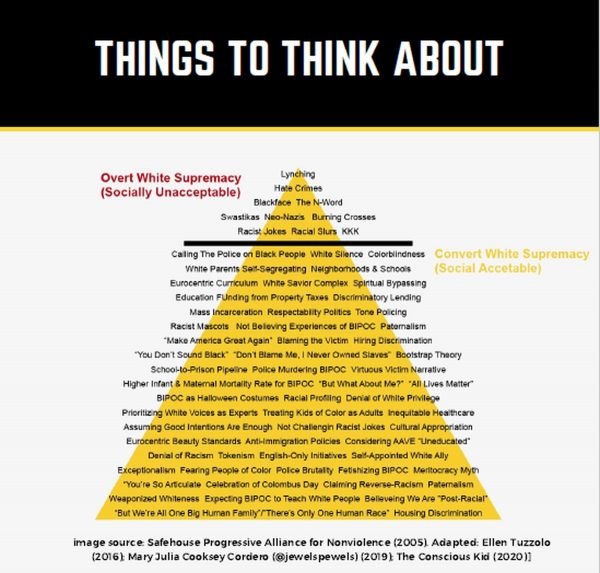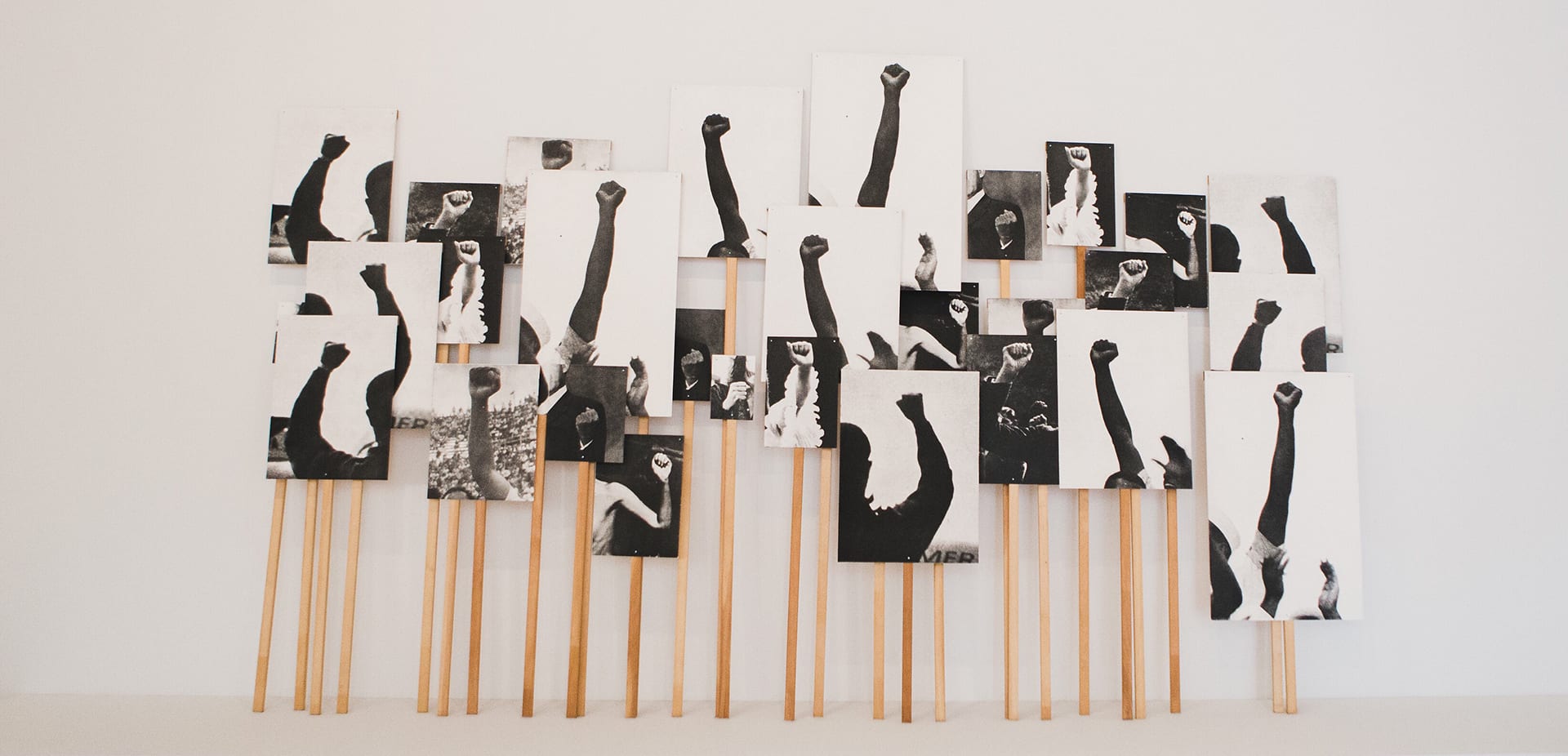This series on Black Life, and racial justice is barely scratching the surface. A few resources for you to begin your own inner work are linked throughout this piece, and the hope is you continue to educate yourself. As this is a foundational way to eradicate Anti-Blackness, and racism. Let’s get into it:
From Columbus statues being torn down, along with other monuments that crystalize and celebrate the dehumanizing beginnings of our nation, it’s taken some time to collectively confront the deeply problematic history. Many BIPOC have had to celebrate their heroes beyond the one page granted to their culture and history as taught in school and the history books. As the late Nigerian author Chinua Achebe once stated: “Until the lions have historians, the hunt will always glorify the hunter.” There has been literal erasure in our lessons, and we see academia perpetuating the narrative that European/white settlers and forefathers were not the genocidal power driven racists they truly were. (i.e. George Washington, his teeth weren’t really wood. They were taken mercilessly from the mouths of his slaves.) The emancipation of slaves took two years to reach the south, and even then, as we can see by the fight for racial justice as of this year, Black American’s have seen an uphill battle with human rights.
It’s no accident that:
You learned about Helen Keller instead of W.E.B. DuBois
You learned about the Watts and L.A. Riots, but not Tulsa or Wilmington.
You learned that George Washington’s dentures were made from wood, rather than the teeth from slaves.
You learned about black ghettos, but not about Black Wall Street.
You learned about the New Deal, but not “red lining.”
You learned about Tommie Smith’s fist in the air at the 1968 Olympics, but not that he was sent home the next day and stripped of his medals.
You learned about “black crime,” but white criminals were never lumped together and discussed in terms of their race.
You learned about “states rights” as the cause of the Civil War, but not that slavery was mentioned 80 times in the articles of secession.
Privilege is having history rewritten so that you don’t have to acknowledge uncomfortable facts.
Racism is perpetuated by people who refuse to learn or acknowledge this reality.
-@TheFortySeveners
From Columbus statues being torn down, along with other monuments that crystalize and celebrate the dehumanizing beginnings of our nation, it’s taken some time to collectively confront the deeply problematic history. Many BIPOC have had to celebrate their heroes beyond the one page granted to their culture and history as taught in school and the history books.
As the late Nigerian author Chinua Achebe once stated: “Until the lions have historians, the hunt will always glorify the hunter.” There has been literal erasure in our lessons, and we see academia perpetuating the narrative that European/white settlers and forefathers were not the genocidal power driven racists they truly were. (i.e. George Washington, his teeth weren’t really wood. They were taken mercilessly from the mouths of his slaves.) The emancipation of slaves took two years to reach the south, and even then, as we can see by the fight for racial justice as of this year, Black American’s have seen an uphill battle with human rights.
Again, as much as young America wanted to be so different from Mother England, it’s clear that the influence of an invisible but highly functioning class system has been at work.
For Black womxn that were brought to this country, their bodies were used as surgical practice to advance gynecological procedures with no form of anesthesia. This form of dehumanization, reproductive torture, and the stripping of bodily autonomy have thrived on the wombs of Black womxn in this country for centuries. Some of the immense injustices include the murder of Emmett Till which served as a deep catalyst for the civil rights movement, and intersectionality for reproductive justice. Considering that last week on July 25 – Emmett Till would’ve only been 79 years old. He was a child when he was accused of whistling at a white woman (she is still alive, and has recently confessed that she lied about the 14 year old Emmet which resulted in his murder). Another countless instance occurred in 1958 when a young Black man, Clennon King, desired to expand his education at Ole Miss, and upon applying was committed to an asylum. Yet another young life taken without cause and a mother who lost a son too early. This is where we see the onset of intersectional justices, and the need to address all aspects. Civil rights and Reproductive justice. How, you may wonder? All parents should be able to see their children grow old, to not have their children’s’ lives snuffed out, or drastically altered for the worst, because of overt/covert racially charged violence.
Every person that is or desires to be a parent deserves to raise their children to their fullest potential and without enduring avoidable (especially racially motivated) violence of any kind. “The talk” for adolescent BIPOC teens has a different definition, and is starkly opposite to that of what white teens receive. It is one that each generation has had to have. It’s, “should you ever be stopped or pulled over – just get home alive. Please comply with, and above all do not ever question white authority. Specifically law enforcement.” Compared with white teens whose parents usually share some version of sex ed and “just say no” to drugs.

The “talk” that Black American Families have been giving their children for generations now, aren’t the norm for other demographics. They are discussions of how to navigate the systems of oppression and violence that specifically impacts their lives. Getting home alive, not just safe if they are stopped by law enforcement is one that occupies much focus in Black American’s homes.
Along with the pseudo or lowkey (but deeply impactful) violence in the form of oppression or intentionally withholding vital resources (education, food and proper nutrition, segregation from community – that if violated, the consequence is legalized and literal violence). The lane of Black American’s simply working to lead their lives equitably with other Americans has always been filled with obstacles in comparison to other demographics. Actualizing an ability to thrive beyond slavery and oppression has taken much work, much of which has been led by Black women.
So today, let’s uplift their work. Insert the work of activism for equity with giant contributors such as the Fannie Lou Hamer who worked on behalf of Black womxn’s reproductive justice, and the right to vote (specifically for BIPOC, because while the centennial for the suffragette movement is this year…that isn’t applicable to non-white womxn), Dorothy Height took on illiteracy, anti-lynching, Black womxn’s rights, and voter’s rights so much more. To the leadership and champion that was found within Ruby Bridges who was merely a first grader when she integrated the first elementary school in the south. As of this year Ruby is only 67 years old. Other heroes to salute are the high schoolers known as the Little Rock 9, the Freedom Riders, and so many more. Desegregation is less than 50 years old, and it’s highly likely that some of your ancestors were deeply problematic. Again, as Maya Angelou once said “When you know better you do better.” Now is the time to do better. While you can’t undo the past, we can certainly learn from those mistakes, and course correct for the future. Confronting three hundred years of oppression and racism, to the extent that systems were put in place to keep a specific group of people oppressed is painful for everyone. Yet it is absolutely necessary.

You may be wondering why these avenues of activism matter? Schools, medical support, housing, and basic human rights for Black folk have a deeply embedded history of being intentionally unavailable to, or sub-par for, our families – inequities perpetuated by American leaders.
This ugly and oppressive history is still activated today in countless ways. Bringing light to this is important as we as a nation work to rectify these modern travesties. We can only resolve what we reveal in order to properly heal. But the work to undo the level of disregard that America has always held for Black American’s full liberation and joy is ahead of us and possible to accomplish.
For further edification, see Brittany Barron’s excellent TED talk on why America is an expert at exercising racism.

